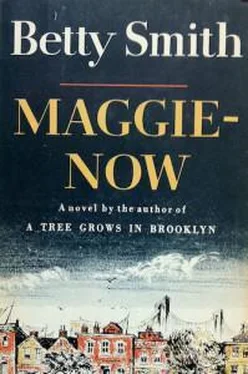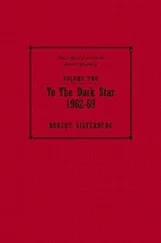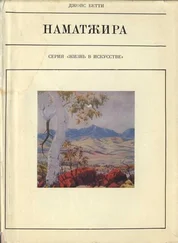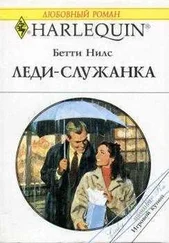Бетти Смит - Maggie-Now
Здесь есть возможность читать онлайн «Бетти Смит - Maggie-Now» весь текст электронной книги совершенно бесплатно (целиком полную версию без сокращений). В некоторых случаях можно слушать аудио, скачать через торрент в формате fb2 и присутствует краткое содержание. Жанр: Проза, на английском языке. Описание произведения, (предисловие) а так же отзывы посетителей доступны на портале библиотеки ЛибКат.
- Название:Maggie-Now
- Автор:
- Жанр:
- Год:неизвестен
- ISBN:нет данных
- Рейтинг книги:3 / 5. Голосов: 1
-
Избранное:Добавить в избранное
- Отзывы:
-
Ваша оценка:
- 60
- 1
- 2
- 3
- 4
- 5
Maggie-Now: краткое содержание, описание и аннотация
Предлагаем к чтению аннотацию, описание, краткое содержание или предисловие (зависит от того, что написал сам автор книги «Maggie-Now»). Если вы не нашли необходимую информацию о книге — напишите в комментариях, мы постараемся отыскать её.
Maggie-Now — читать онлайн бесплатно полную книгу (весь текст) целиком
Ниже представлен текст книги, разбитый по страницам. Система сохранения места последней прочитанной страницы, позволяет с удобством читать онлайн бесплатно книгу «Maggie-Now», без необходимости каждый раз заново искать на чём Вы остановились. Поставьте закладку, и сможете в любой момент перейти на страницу, на которой закончили чтение.
Интервал:
Закладка:
"But Papa lives here…."
"I like your father," he said. "He has his own special kind of integrity. I'll get a good job and pay all the expenses. Your father will be our guest."
"Papa would pay something for himself and Denny."
"I wouldn't let him."
The door opened and Denny, in striped flannel pajamas and [272]
with his eyes half closed, stood there. He addressed Claude without salutation.
"You know that kite you gave me?" he said.
"Yes."
"Well, it's busted."
"I'll get you another."
"But I had a kite. I'd like something different,"
"I'll get you something different."
"You mustn't ask for tilings, Denny," said Maggie-Now.
"Denny," said Claude, "will you be my brother?"
Denny looked at his sister. She smiled and nodded. "I
guess so," he said. He yawned and went back to bed.
"To think-," said Claude happily, "me who never had anything; who never had anyone! And now I'll have a wife and a father and a young brother and a home life. All this to come to me!"
Maggie-Now had a flash of intuition. "You were brought up in an orphans' home, then." She saw his eyes flicker but he wouldn't say yes and he wouldn't say no. But she knew it was true. "I wish you'd tell me. ."
"There is little to tell. I was a boy, I grew up and got a fairly good education and I turned into a wanderer. You could call me a tramp, except that I worked my way around. I've always liked to travel, see different places, live in different ways. I'd stay in one place and work awhile to get money to go on to a new place. I never wanted to be long in one place, to form ties and friendships. I liked being a lone wolf. But now my wandering days are over. It will be bliss to settle down…."
He interrupted himself. "Bliss. There's a word, now. Bliss to love and to be loved."
"But there must have been things that happened to you someone that you got to know real well…."
"Do you mean, have I got a past?"
"I guess so.'' "You are my past. My past, my present and my future.
I am making my past now. And it is a good one. Twenty years from now, maybe, someone will ask me about my past and I'll say: 'My past started one Easter week in Brooklyn where I met a girl named Margaret Rose Moore, only everybody called her Maggie
~ 273]
~ CHAPTER THIRTY-EIGHT ~
SOME men don't like to work; they duck work as long as they can. When conscience or need drives them to work, they're apt to pick the hardest work available, probably as penance or to prove they can do hard work. Claude took a temporary job shoveling snow for the city.
The snow was a curse to many but a blessing to jobless men and to children. Even in this war year, with so many men in the services and well-paid, wartime jobs for nearly all, there were still men available for snow shoveling: men too old or too young to have steady jobs, college boys wanting to pick up a few dollars, and drifters.
In one of the far-flung neighborhoods of Brooklyn, there was a sanitation boss who had seemingly been born just to hire college men to shovel snow. Henny Clynne had come up from the ranks. He had started as sweeper and by taking civil service exams over and over until he finally passed, and by pull, he got to be superintendent and gained the power, along with his other duties, of hiring and firing college men. He liked to hire college men for snow shoveling because he couldn't stand the sight of any man who had gone to college. When Claude applied for work, Henny looked him over and considered him a prize.
"What college you from?" he asked Claude.
Claude fixed his stare at the bottom of Henny's left ear and said: "The college of hard knocks."
"Don't get wise with me," snarled Henny. "Though I
don't blame you for being ashamed to admit you went to college. But you can't fool me. I can tell a college man a mile oflf."
"That's interesting, sir," said Claude. Henny was getting nervous at Claude staring at his ear lobe. He moved his head. Claude refocused his stare.
[274] "Yep, I can tell by your shoes. A honest, hard-working man don't wear thin shoes with thin soles. I always say, let me see a man's shoes and I'll tell you what he is."
"That's very clever, sir."
"I know you're a college graduate. Come on, now. What college? "
"Shall we say, Oxford?" said Claude.
"Where's Oxford?"
"In Mississippi."
"So you went to college! Born with a silver spoon in your mouth. And you end up begging me for work; hard work, mind you. Dirty work. Now take me," he went on complacently. "Never went to school more than three years in me whole life. Would you believe it to look at me?"
"Oh, no, sir!"
"I learned meself everything I know and I know plenty.
I came to this country thirty years ago a ignorant mick with me trunk on me back. I didn't know nothing. And look at me today!"
"My! " breathed Claude admiringly. He thrust his head forward to take a closer look at Henny's ear lobe.
"What's-a matter?" asked Henny.
"Nothing."
"You wait here, now, till I interview them other rah-rah boys."
Henny separated the wheat from the chaff. Then he lined up the wheat, gave them instructions, handed out shovels and marched them to their work area. He went back to his office, which was a rented store, and examined his left ear in the lavatory mirror.
For a nzinz~te, there, he thought, the way that feller was looking at me, I thought there was a louse or something crawling around me ear.
The men had been working two hours when Henny showed up for the morning pep talk. He chose to address his communal remarks to C'laude.
"Shovel it up, college boy. Shovel it up! We ain't here to pick daisies, you know." Some of the men stopped working and leaned on their shovels. Penny was waiting for this. "I
see that the coach called time out. That gives us a chance to give out with the old razz-a-ma-tazz, fellers." He took a cheer leader's stance and
~ 27S]
chanted: "Raw-raw-raw! Raw-raw-raw! Shovel it up, shovel it up, raw-raw-raw! "
One shoveler guffawed, one grinned, another turned his head to spit, some looked astonished, some looked sheepish and Claude stared at Henny's left ear lobe. He stared until Henny scratched it, then Claude resumed piling up the snow.
A small crowd had gathered to enjoy Henny's show mostly old men with nothing to do and marketing mothers with small children.
"Those men went to college," said a mother to her small son.
"How can you tell, I\lissus?" asked a garrulous old man who had overheard the remark.
"Because some ain't got overcoats and because Mr.
Clynne said so."
"So they went to college," mused the old man.
"Yeah.'' "And what does that prove, Missus? "
"I didn't say it proved anything. I just said what was a fac'. They went to college."
Late that afternoon, dead tired, but with earned money in his pocket, Claude went to keep the appointment with Father Flynn that Maggie-Now had made for him. He was glad, at the priest's invitation, to sink into a worn, brown-leather Morris chair.
Claude was surprised that the priest's living room looked like any room in a comfortable house. He had expected it to look a little like a small church. The wintry, lemon-colored sun slanted in through a window and shone through a clear glass decanter, half full of sauterne (the gift of a parishioner). It made a pale golden shadow on the polished wood of the table. There was a rack of pipes on the desk (each pipe a loving gift), and a humidor of tobacco supplied by Van Clees.
Читать дальшеИнтервал:
Закладка:
Похожие книги на «Maggie-Now»
Представляем Вашему вниманию похожие книги на «Maggie-Now» списком для выбора. Мы отобрали схожую по названию и смыслу литературу в надежде предоставить читателям больше вариантов отыскать новые, интересные, ещё непрочитанные произведения.
Обсуждение, отзывы о книге «Maggie-Now» и просто собственные мнения читателей. Оставьте ваши комментарии, напишите, что Вы думаете о произведении, его смысле или главных героях. Укажите что конкретно понравилось, а что нет, и почему Вы так считаете.












